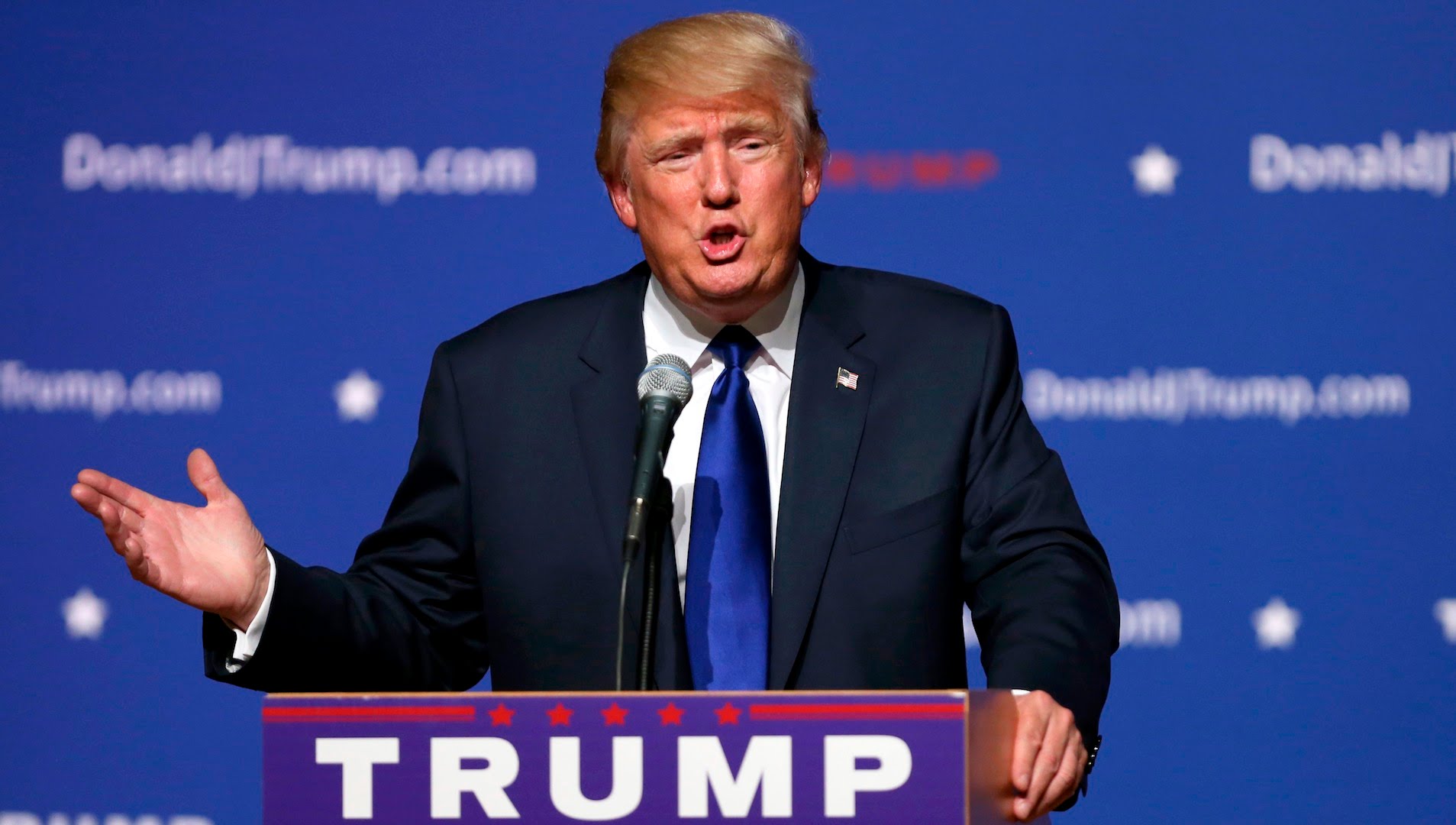The Donald was at it again during Wednesday’s Republican debate, with his usual questionable claims, insults, not-so-humble brags and bizarre ramblings.
By now, most of us are all too familiar with the brash behavior, bullying and boasting that seem to define Trump’s personality. But what’s really going on underneath those golden locks? What do we really know about Trump’s personality and, heaven forbid, the type of leader he would make?
We can only speculate, of course, but the Republican candidate’s behavior does offer clues. HuffPost Science spoke to some psychologists to learn more about Trump’s personality and emotional life. Here’s what we learned.
He seems to be the opposite of humble.
And this should surprise exactly… no one.
“In watching Donald Trump in the Republican debates, he comes across as someone who is self-centered and lacking in humility,” Taya Cohen, a personality researcher at Carnegie Mellon University, told The Huffington Post in an email. “He seems to be aware of this persona, as he ironically joked that his presidential codename could be ‘Humble.'”
“Trump rarely, if ever, admits mistakes or expresses guilt, shame, or embarrassment for things he has said or done, suggesting that, with the exception of pride, self-conscious emotions do not play a central role in his life,” Cohen said.
View post on imgur.com
There’s one big caveat here. Trump doesn’t appear to embody a main characteristic of the honesty-humility personality dimension: Machiavellianism. Cohen explained that people high in Machiavellianism tend to be dishonest, callous and manipulative.
“Indeed, Trump’s reputation as honest, candid, and outspoken is a large source of his appeal to voters,” Cohen said. “In contrast to Trump, Machiavellian individuals believe in telling people what they want to hear. Trump’s controversial public statements in the media suggest that he does not prioritize telling people what they want to hear.”
He may be a serious narcissist.
Trump once told Maureen Dowd, a New York Times columnist, “I am a man of great achievement … I always win … It’s what I do. I beat people. I win.”
As we all know, Trump likes to see the world in terms of winners (him) and losers/morons/haters (including Barack Obama, Arianna Huffington, Rihanna and pretty much the rest of the U.S. population).
I would like to wish everyone, including all haters and losers (of which, sadly, there are many) a truly happy and enjoyable Memorial Day!
— Donald J. Trump (@realDonaldTrump) May 24, 2015
“Narcissists like Donald Trump … are constantly driven to prove themselves among the ‘winners’ of the world, often by triumphing over or denigrating other people as comparative ‘losers,'” Joseph Burgo, psychotherapist and author of The Narcissist You Know, told The Huffington Post in an email. “If you examine Trump’s language in his public statements as well as in the debates, you will hear him proclaim his winner status again and again while sneering at his detractors as losers.”
Why? This type of me-versus-everyone mentality and behavior is often a misguided attempt to mask feelings of emptiness and shame. As Burgo explained, people with high levels of narcissism tend to be driven by unconscious feelings of unworthiness.
“The constant self-aggrandizement reflects an ongoing, non-stop effort to build up and support a self-image that contradicts this unconscious sense of defect,”Burgo said. “You don’t need a doctorate in psychology to wonder whether a man who feels the need to forever trumpet his superiority might feel an entirely different way underneath. The gentleman doth protest too much, methinks.”
He has traits that have brought him leadership success.
Perhaps Trump’s most observable characteristic is boldness. He’s confident, outspoken, in your face and seems to hold a very high opinion of himself.
These qualities may have helped him succeed as a leader in business (and, to some extent, as a candidate), but that may not get him much further than the primaries.
“In general, people like that make a good first impression, but become difficult to work with over time because they feel entitled to special treatment, ignore criticism, and intimidate others,” Ryne Sherman, a personality psychologist at Florida Atlantic University, told The Huffington Post in an email. “They also tend to overestimate their capabilities, which results in trying to accomplish too much too quickly and overextended one’s resources.”
Adam Perkins, a neurobiologist of personality at King’s College London, said that while Trump may not be the most agreeable person, he’s certainly not stupid.
“He is also highly intelligent, and so has a lot of problem-solving horsepower to direct at whatever goals his personality profile sets,” Perkins noted.
He may be lacking in empathy and emotional sensitivity.
The mean tweets, endless insults and flagrant disregard for the feelings of entire populations all point to one thing: Trump doesn’t seem to have a lot of regard for other people.
“Mr. Trump is low on interpersonal sensitivity,” Sherman said of his bullying tendencies. “He is direct and frank in dealing with people, doesn’t stand down from a confrontation, and doesn’t worry about hurting someone’s feelings. The benefit to this is that he is willing to deal with poor performance quickly. The downside is that his team will fear his hostility and he may alienate his staff.”







